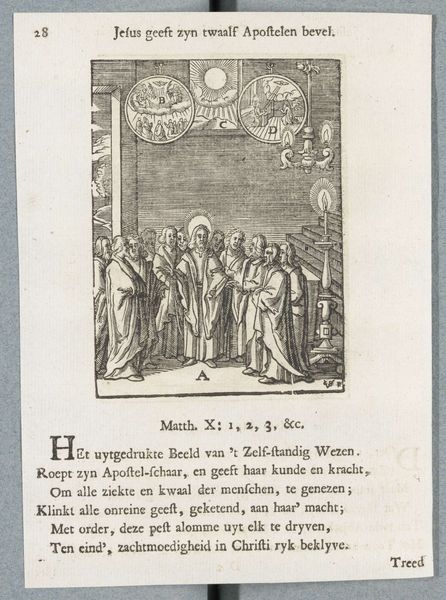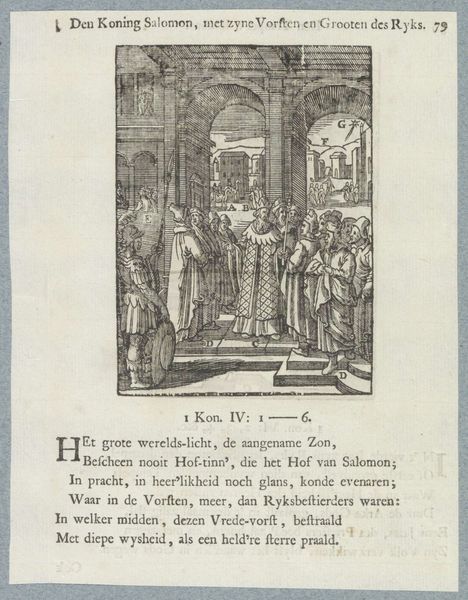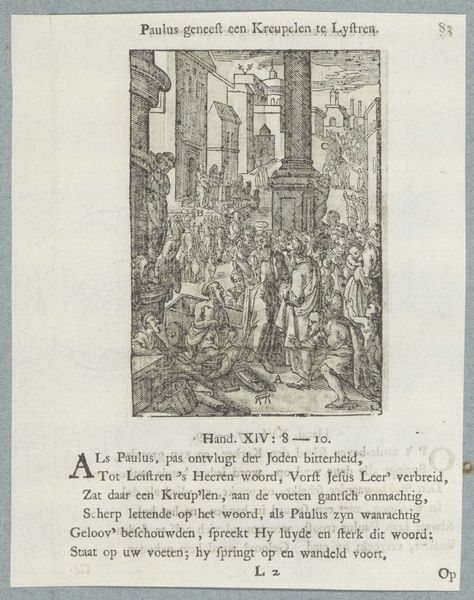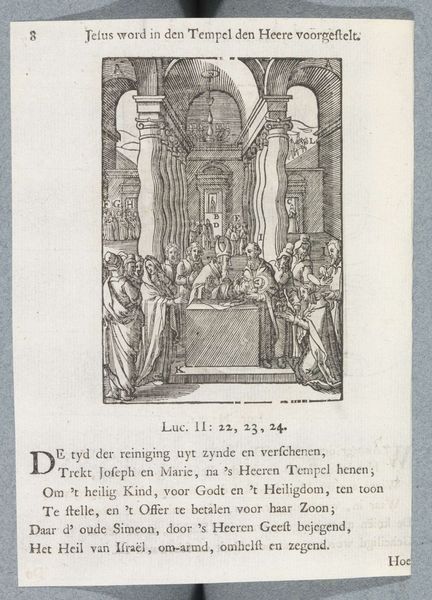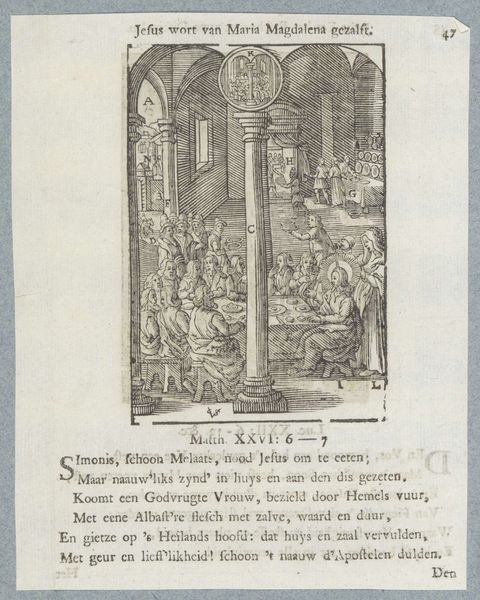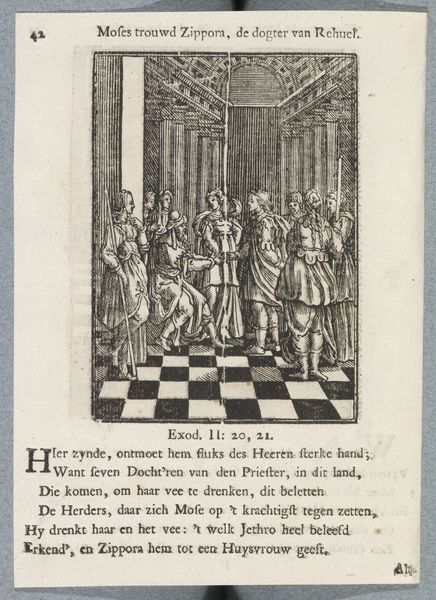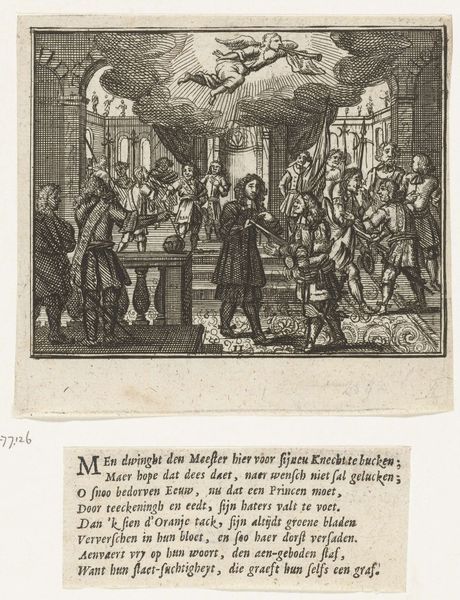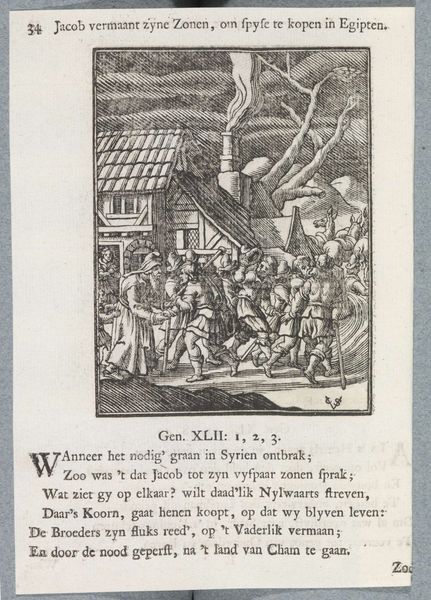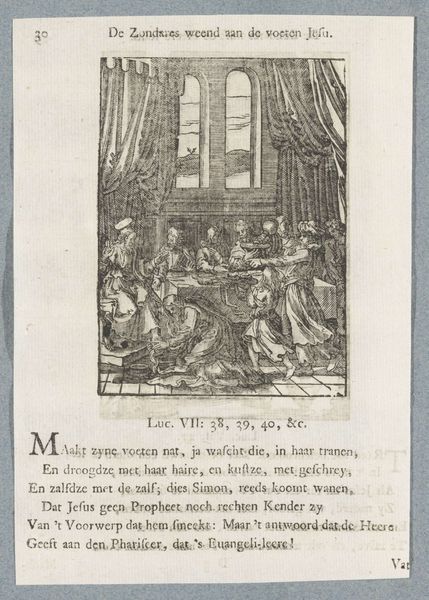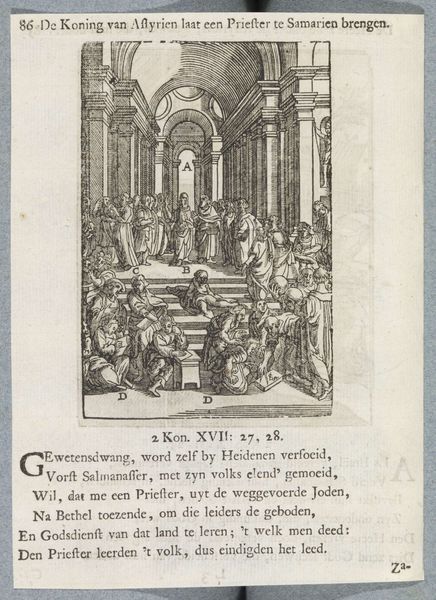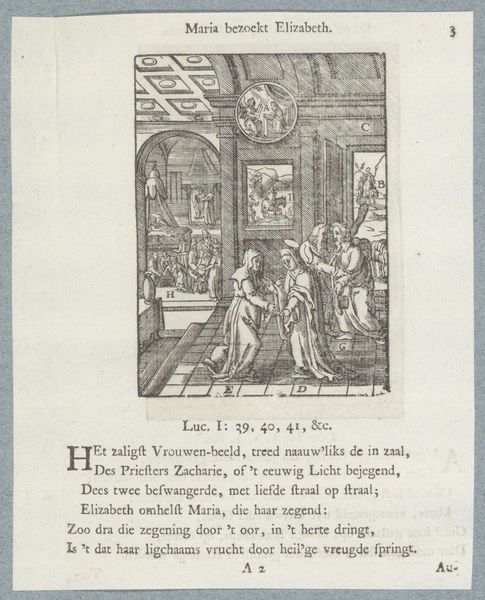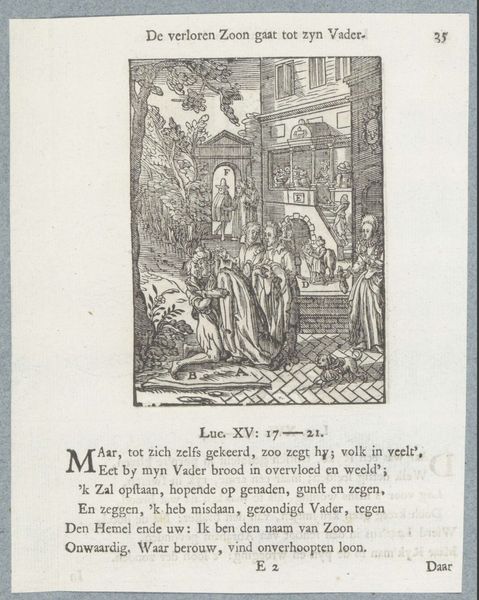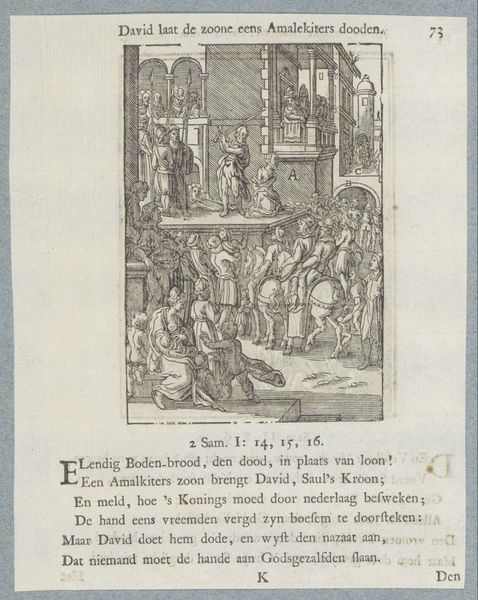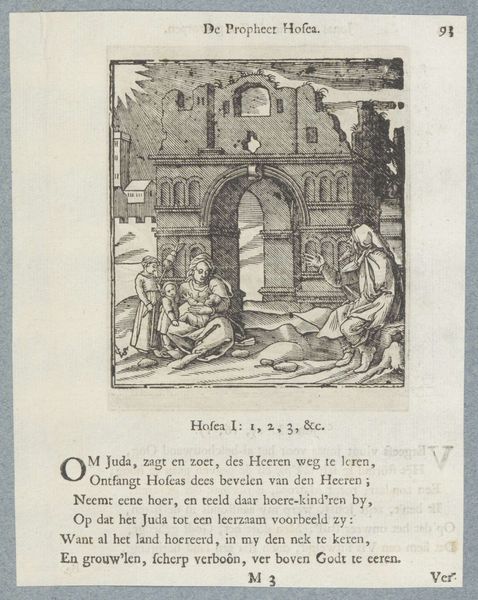
print, engraving
#
narrative-art
#
baroque
# print
#
figuration
#
engraving
Dimensions: height 99 mm, width 75 mm, height 170 mm, width 136 mm
Copyright: Rijks Museum: Open Domain
This is Christoffel van Sichem II's woodcut, "Parable of the Workers in the Vineyard," made sometime between 1581 and 1658. Sichem was working during a period of intense religious and social upheaval in Europe. As the Protestant Reformation spread, artists frequently used biblical scenes to explore themes of justice, labor, and divine grace. Here, the scene depicts a landowner paying laborers who worked varying hours the same wage, based on the Gospel of Matthew. Consider the social hierarchy inherent in the image. Landowners, usually men, are positioned as figures of authority, while laborers represent the working class. The print raises questions about fairness, economic inequality, and the value of labor. What does it mean to receive equal pay for unequal work? Are there parallels between the workers' plight and contemporary debates about economic justice and social welfare? What would it mean to create an economic system based on grace rather than labor?
Comments
No comments
Be the first to comment and join the conversation on the ultimate creative platform.
